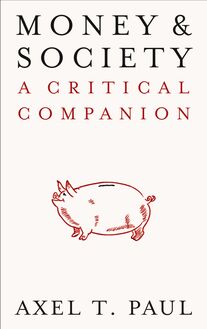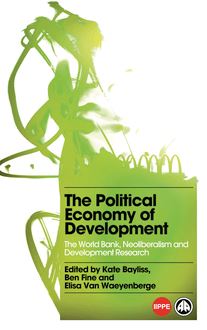-
 Univers
Univers
-
 Ebooks
Ebooks
-
 Livres audio
Livres audio
-
 Presse
Presse
-
 Podcasts
Podcasts
-
 BD
BD
-
 Documents
Documents
-
- Cours
- Révisions
- Ressources pédagogiques
- Sciences de l’éducation
- Manuels scolaires
- Langues
- Travaux de classe
- Annales de BEP
- Etudes supérieures
- Maternelle et primaire
- Fiches de lecture
- Orientation scolaire
- Méthodologie
- Corrigés de devoir
- Annales d’examens et concours
- Annales du bac
- Annales du brevet
- Rapports de stage
La lecture à portée de main
289 pages
English
Découvre YouScribe en t'inscrivant gratuitement
Je m'inscrisDécouvre YouScribe en t'inscrivant gratuitement
Je m'inscris
Obtenez un accès à la bibliothèque pour le consulter en ligne
En savoir plus
En savoir plus
289 pages
English
Obtenez un accès à la bibliothèque pour le consulter en ligne
En savoir plus
En savoir plus

Description
Tracing the evolution of social capital since his highly acclaimed contribution of 2001 (Social Capital Versus Social Theory), Ben Fine consolidates his position as the world's leading critic of the concept.
Fine forcibly demonstrates how social capital has expanded across the social sciences only by degrading the different disciplines and topics that it touches: a McDonaldisation of social theory. The rise and fall of social capital at the World Bank is critically explained as is social capital's growing presence in disciplines, such as management studies, and its relative absence in others, such as social history.
Writing with a sharp critical edge, Fine not only deconstructs the roller-coaster presence of social capital across the social sciences but also draws out lessons on how (and how not) to do research.
1. Introduction
2. From Rational Choice to McDonaldisation
3. The Short History of Social Capital
4. The BBI Syndrome
5. Social Capital versus Social History
6. Social Capital is Dead: Long Live Whatever Comes Next
7. Management Studies Goes to McDonald's
8. Degradation without Limit
9. W(h)ither Social Capital?
Notes
Bibliography
Index
Fine forcibly demonstrates how social capital has expanded across the social sciences only by degrading the different disciplines and topics that it touches: a McDonaldisation of social theory. The rise and fall of social capital at the World Bank is critically explained as is social capital's growing presence in disciplines, such as management studies, and its relative absence in others, such as social history.
Writing with a sharp critical edge, Fine not only deconstructs the roller-coaster presence of social capital across the social sciences but also draws out lessons on how (and how not) to do research.
1. Introduction
2. From Rational Choice to McDonaldisation
3. The Short History of Social Capital
4. The BBI Syndrome
5. Social Capital versus Social History
6. Social Capital is Dead: Long Live Whatever Comes Next
7. Management Studies Goes to McDonald's
8. Degradation without Limit
9. W(h)ither Social Capital?
Notes
Bibliography
Index
Sujets
Informations
| Publié par | Pluto Press |
| Date de parution | 11 janvier 2010 |
| Nombre de lectures | 0 |
| EAN13 | 9781849644426 |
| Langue | English |
| Poids de l'ouvrage | 2 Mo |
Informations légales : prix de location à la page 0,6250€. Cette information est donnée uniquement à titre indicatif conformément à la législation en vigueur.
Extrait
Theories of Social Capital
Political Economy and Development
Published in association with the International Initiative for Promoting Political Economy (IIPPE)
Edited by Ben Fine (SOAS, University of London) Dimitris Milonakis (University of Crete)
Political economy and the theory of economic and social development have long been fellow travellers, sharing an interdisciplinary and multidimensional character. Over the last 50 years, mainstream economics has become totally formalistic, attaching itself to increasingly narrow methods and techniques at the expense of other approaches. Despite this narrowness, neoclassical economics has expanded its domain of application to other social sciences, but has shown itself incapable of addressing social phenomena and coming to terms with current developments in the world economy. With world financial crises no longer a distant memory, and neo-liberalism and postmodernism in retreat, prospects for political economy have strengthened. It allows constructive liaison between the dismal and other social sciences and rich potential in charting and explaining combined and uneven development. The objective of this series is to support the revival and renewal of political economy, both in itself and in dialogue with other social sciences. Drawing on rich traditions, we invite contributions that constructively engage with heterodox economics, critically assess mainstream economics, address contemporary developments and offer alternative policy prescriptions.
THEORIES OF SOCIAL CAPITAL
Researchers Behaving Badly
Ben Fine
First published 2010 by Pluto Press 345 Archway Road, London N6 5AA and 175 Fifth Avenue, New York, NY 10010
www.plutobooks.com
Distributed in the United States of America exclusively by Palgrave Macmillan, a division of St. Martin’s Press LLC, 175 Fifth Avenue, New York, NY 10010
Copyright © Ben Fine 2010
The right of Ben Fine to be identified as the author of this work has been asserted by him in accordance with the Copyright, Designs and Patents Act 1988.
British Library Cataloguing in Publication Data A catalogue record for this book is available from the British Library
ISBN ISBN
978 0 7453 2997 0 978 0 7453 2996 3
Hardback Paperback
Library of Congress Cataloging in Publication Data applied for
This book is printed on paper suitable for recycling and made from fully managed and sustained forest sources. Logging, pulping and manufacturing processes are expected to conform to the environmental standards of the country of origin.
10
9
8
7
6
5
4
3
2
1
Designed and produced for Pluto Press by Chase Publishing Services Ltd, 33 Livonia Road, Sidmouth, EX10 9JB England Typeset from disk by Stanford DTP Services, Northampton, England Printed and bound in the European Union by CPI Antony Rowe, Chippenham and Eastbourne
Contents
AcknowledgementsPreface
1
2 2.12.22.32.42.5
Introduction
From Rational Choice to McDonaldisation Introduction Pegging a Survey Social Capital as McDonaldisation The McDonaldisation Menu Concluding Remarks
3 The Short History of Social Capital3.1Introduction 3.2 ’Twixt Becker and Bourdieu 3.3Departing Neo-Liberalism? 3.4Social Capital as Ploughman’s Lunch 3.5Concluding Remarks
4 The BBI Syndrome 4.1Introduction 4.2Social Capital as Black Hole 4.3BBI Gender on the Dark Side 4.4Social Capital in Context – Or Vice Versa? 4.5RemarksbBIWayBBdulcgnifoynoC
5 Social Capital versus Social History 5.1Introduction 5.2The Historical Dog That Did Not Bark 5.3From Social Capital to History 5.4The Present as History 5.5There Is No Alternative?
6 Social Capital is Dead: Long Live Whatever Comes Next 6.1Introduction 6.2Social Capital’s Irresistible Rise …
vii viii
1
12 12 12 17 20 34
36 36 38 46 49 58
60 60 62 68 75 84
90 90 91 96 104 106
110 110 114
viOF SOCIAL CAPITAL THEORIES
6.3… and Fall 6.4Strategic Weaknesses Are Tactical Strengths? 6.5Deconstructing the Buzz 6.6GBS, Hegel and Abraham Lincoln
7 7.17.27.37.47.5
8 8.18.28.38.48.5
Management Studies Goes to McDonald’sIntroduction ’Twixt Heterodoxy and Parasitism? It Ain’t Critical … … And It Ain’t Marxist Concluding Remarks
Degradation without Limit Introduction Putnamenology The Dismal (Social) Science InSocialCapitalWeTrust?Concluding Remarks
9 W(h)ither Social Capital? 9.1Introduction 9.2Flavouring But Not Favouring Social Capital 9.3Measure for Measure 9.4Social Capital as Policy? 9.5The Last Word – Again
NotesBibliographyIndex
124 129 134 136
140 140 141 143 153 156
158 158 158 171 176 183
184 184 185 194 197 205
208 226 260
Acknowledgements
This is the first book in the IIPPE Series and offers the opportunity to appreciate all of those who have made IIPPE possible and who continue to contribute to its growth, success and influence. The book itself has in part been designed to help research students in going about their research, and I can also thank numerous students for rewarding interactions, hopefully reciprocal, over the years. Last, and more immediate, thanks to Pluto staff for launching the serieswiththisvolume,andtoAnthonyWinderinparticularforhis conscientious copy-editing leading to improvements on each and every page.
vii
Preface
To say that capital is social is not at all the same thing as saying that the social is capital. (With due acknowledgement to the Mad Hatter and the March Hare.)
The story is told (it is almost certainly false) that Queen Victoria was so taken byAlice in Wonderlandthat she requested its author, Lewis Carroll (aka Charles Dodgson, a lecturer in mathematics at Christ Church, Oxford), to send her a copy of his next published work. She duly receivedAn Elementary Treatise on Determinants. Now the divide between fantasy and mathematics is not so great that it cannot be bridged by a single individual. But social science and social theory have become marked by a number of less easily bridged divides – not least those of methodology, method and subject matter. This is so much so that it is relatively rare for a topic to find a presence across all disciplines and, even where there are exceptions, the topics concerned tend to be treated and understood in entirely different ways. This is hardly surprising if, for example, we focus on the relationship between economics and the other social sciences. The dismal science has, with some notable exceptions where rational choice is involved, a totally different concept of the individual than that of social theory, a consequence in part of the equally yawning gap between the methodologies associated with axiomatic deduction as opposed, for example, to postmodernist deconstruction of identity. By the same token, the ways in which society is addressed are at odds with one another, reflecting methodological individualism on the one hand rather than some form of systemic analysis on the other. Nonetheless, we do all live in the same world even if we experience and interpret it differently. Some general concepts are almost unavoidably shared, apart from individual and society, most notably the state and the market. And others, such as globalisation, enjoy a prominence when we reflect what is taken to be the ethos of a particular stage in our commonly shared history. That history and our existence are now dominated by capitalism, however this is itself understood as an economic and social category. In the age of neo-liberalism, there has been a thrust to convert as much as
viii
PREFACEix
possible to market forms in general and to the control of capital in particular. This has reinforced, rather than introduced, a tendency to treat all, and not just commercial, resources as if they were a form of capital. Most notable has been human capital in the past. It has been complemented by environmental capital as the way in which we do, or do not, sustain the globe’s ecology. ‘Mental capital’ is a recent addition – incorporating the idea that we should treat our own well-being as a sort of asset, sharing characteristics with the factory if not the bank account (see Chapter 2), and no doubt minds as well as banks can go toxic. This is all a blatant example of a sort of generalised commodity fetishism in which all social relations, and not just those attached to the market, appear as, indeed, they are in part, a material relation between things that have some worth or, at least, some effect. Everything from our abilities to our states of mind becomes capital-like. In this light, it is hardly surprising that each and every social relation or interaction should become seen as a form of capital, something to be accumulated and to be deployed for advantage if not profit. And this is exactly why the notion of social capital has emerged and shot to prominence over the past 20 years (although why this should happen now, with the content and incidence that it has across the social sciences, is addressed in what follows). So, if I were to be asked to give a definition of social capital, it would beanyaspect of thesocialthat cannot be deemed to be economic but which can be deemed to be an asset. As will be seen, it can be anything from your personal acquaintances (not what but who you know) and family, through communal or associational activity, to your identity or culture and trust in police, politicians or others, and so on. And so the social becomes capital and the capital is no longer social despite our opening (invented) quote. Let us leave the last word to Alice herself, who could well have been dreaming of social capital.
If I had a world of my own, everything would be nonsense. Nothing would be what it is, because everything would be what it isn’t. And contrary wise, what is, it wouldn’t be. And what it wouldn’t be, it would. You see?
-
 Univers
Univers
-
 Ebooks
Ebooks
-
 Livres audio
Livres audio
-
 Presse
Presse
-
 Podcasts
Podcasts
-
 BD
BD
-
 Documents
Documents
-
Jeunesse
-
Littérature
-
Ressources professionnelles
-
Santé et bien-être
-
Savoirs
-
Education
-
Loisirs et hobbies
-
Art, musique et cinéma
-
Actualité et débat de société
-
Jeunesse
-
Littérature
-
Ressources professionnelles
-
Santé et bien-être
-
Savoirs
-
Education
-
Loisirs et hobbies
-
Art, musique et cinéma
-
Actualité et débat de société
-
Actualités
-
Lifestyle
-
Presse jeunesse
-
Presse professionnelle
-
Pratique
-
Presse sportive
-
Presse internationale
-
Culture & Médias
-
Action et Aventures
-
Science-fiction et Fantasy
-
Société
-
Jeunesse
-
Littérature
-
Ressources professionnelles
-
Santé et bien-être
-
Savoirs
-
Education
-
Loisirs et hobbies
-
Art, musique et cinéma
-
Actualité et débat de société
- Cours
- Révisions
- Ressources pédagogiques
- Sciences de l’éducation
- Manuels scolaires
- Langues
- Travaux de classe
- Annales de BEP
- Etudes supérieures
- Maternelle et primaire
- Fiches de lecture
- Orientation scolaire
- Méthodologie
- Corrigés de devoir
- Annales d’examens et concours
- Annales du bac
- Annales du brevet
- Rapports de stage
Signaler un problème
YouScribe
Le catalogue
Le service
© 2010-2024 YouScribe















